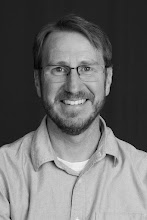I was warned about it during my PhD orientation days: imposter syndrome. It's a graduate student sentiment, a feeling of not belonging of being a phony in a program where you are supposed to be one of the smartest.
After almost four years I still wrestle with inadequacy. It creeps in everyone once in a while. A passing "your a fraud" thought or an idea about knowing less than I should. The voice of doubt screams, "Your research is garbage! You do not belong here!". There is very little good that arises from these moments.
Of course, one virtue stumbles along behind imposter syndrome. It's quieter, gentler, and a much better companion. It's name is humility. Humility appears alongside vulnerability as a secret weapon for those willing to risk exposure as the fraud imposter syndrome claims you are.
Believe it or not, even as I reach the end of my four year PhD journey, I still wrestle with imposter syndrome. Thankfully, when I'm pinned down and feeling like a phony, humility quietly reminds me "I've got you. You're right where you need to be".





